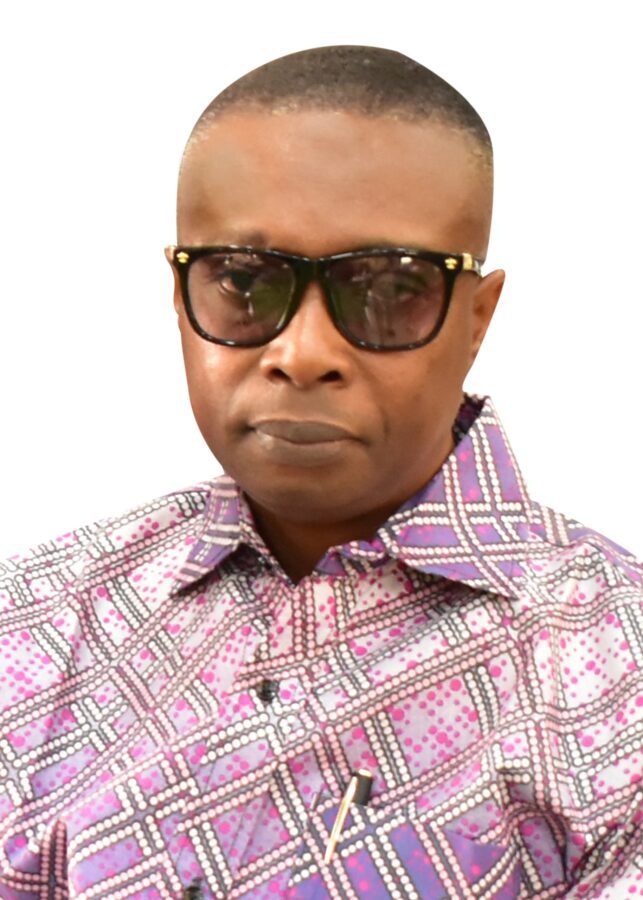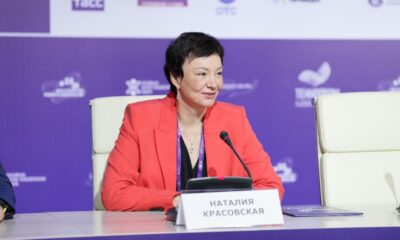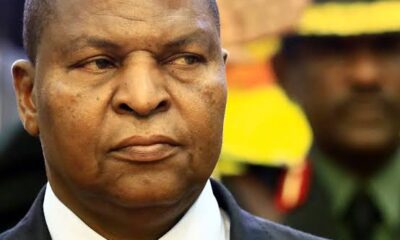Educational Issues
As FUNAAB VC Marks Three Years in Office -By Adewale Kupoluyi

About three years ago, Prof. Felix Kolawole Salako assumed office as the Sixth Substantive Vice-Chancellor of the Federal University of Agriculture, Abeokuta (FUNAAB), Ogun State. Salako is a Professor of Soil Physics and Fellow of the Soil Science Society of Nigeria (FSSSN). His well-crafted theme for the job showcases the Vice-Chancellor’s vision, mission statement and core values of respect for humanity and society, integrity, justice and fair play, productivity, and harmony without compromising discipline. How has FUNAAB VC fared in his 12-cardinal agenda, as encapsulated in the theme; “Excellence cannot be compromised”?
A cursory look at the journey of the 32-year-old institution, often described as beautiful and serene, into greatness suggests that FUNAAB is now truly on the right path to becoming a centre of academic excellence. What are the indicators? In the period under review, it is instructive to note that the University achieved 100% score after the last accreditation exercise in 2019 whereby a total of 18 programmes had Full Accreditation while only one had Interim Accreditation. Aside from that, FUNAAB is the first public University to obtain international accreditation for the World Bank’s Centre of Excellence in Agricultural Development and Sustainable Environment (CEADESE); an assessment that was carried out by the German-based Board of the Agency for Quality Assurance System (AQAS) in which four of its postgraduate programmes were accredited.
The manifestation of the internationalisation drive of the University is responsible for why it has been possible for CEADESE to draw international students from the Republic of Benin, Liberia, and The Gambia. Students of the University have done well in professional examinations conducted by reputable examining bodies like the Institute of Chartered Accountants of Nigeria (ICAN), Chartered Institute of Bankers (CIBN), and competitions organised by the Council for the Regulation of Engineering in Nigeria (COREN), among others. To ensure that graduates of the University become job-creators, its Centre for Entrepreneurial Studies (CENTS) has been strengthened to offer series of empowerment training programmes and with the appointment of the ace cinematographer, Alagba Tunde Kelani, CEO of Mainframe Production and a recipient of the prestigious Leopold Sedar Senghor Prize, as a Visiting Fellow, who recently designed an online film making course to keep FUNAAB students busy during the Coronavirus disease (COVID-19) national lockdown.
The community development efforts of the University have been up-scaled by aiding students’ practice in agriculture in the various villages while extension staff are motivated to impart knowledge on farmers in their respective locations, especially with the commencement of FUNAAB Radio 89.5 FM broadcast. On staff development, 217 staff have benefited from the capacity building programmes supported by the Tertiary Education Trust Fund (TETFund), covering local and international academic postgraduate degrees and largely supported the NEEDS Assessment. The result of heavy investment in staff development is paying off. For instance, a retired Professor of Animal Breeding, Prof. Ayoka Adebambo has left a legacy by breeding the FUNAAB Alpha chicken and got it registered with the National Centre for Genetic Resources and Biotechnology (NACGRAB). This special breed of chicken is an improvement over local chickens and is being marketed for the benefit of communities and in promoting food security.
The FUNAAB Alpha chicken project was partially supported by the United States of America-based Bill & Melinda Gates Foundation likewise the Cassava: Adding Value for Africa (C:AVA) and the African Cassava Agronomy Initiative (ACAI), which the Vice-Chancellor was once its Southwest Coordinator. Already, FUNAAB is being considered for the generation of energy through solar panels on a large scale, as some of its researchers have shown interest in biogas production. There are other channels that FUNAAB staff are making waves such as the African Women in Agricultural Research and Development (AWARD), a platform through which the University reaches out to women within and outside Nigeria. It is important to note that 11 research groups have benefited this year alone from the TETFund-supported National Research Fund (NRF). Under capital allocation, 16 projects have been carried out that include the purchase of farm machinery, road rehabilitation, and improvement of Internet facilities.
In summary, there are about 120 projects embarked upon since three years ago. These are funded mainly through TETFund and NEEDS Assessment, Capital and Revitalisation funds. The World Bank, through the NUC, funded some projects in CEADESE, the flagship of which is the well-equipped central laboratory, as the centre has also been involved capacity building. The College of Physical Sciences (COLPHYS) would soon have a building of its own, leaving the old building of the College from which it was created a few years ago. In promoting research and scholarship, the University central laboratory is equipped with state-of-the-art facilities without leaving behind other Colleges with peculiar laboratory needs. This is in tandem with the belief of the Vice-Chancellor that “we do not only build, but we equip”. The University is furnishing the existing teaching facilities with modern and interactive electronic gadgets for lecture theatre; old auditoria have been refurbished while massive rehabilitation is taking place in both male and female hostels.
An avid reader, the Vice-Chancellor ensures that the ‘Nimbe Adedipe (University Library) is well stocked. Similarly, the Students’ Union Building has been rehabilitated alongside four new undergraduate hostels and two new postgraduate hostels. The University encourages virile and responsible staff and student unionism that is premised on the principle of “harmony without compromising discipline”. In FUNAAB, income generation drive has been enhanced with the upgrading of commercial facilities such as the cassava processing equipment, bakery, confectionery unit, bottled/sachet water factory, cashew processing and on-going improvement of the palm oil processing. The odourless ‘fufu’ produced in the cassava factory is a product of research in the University, as many small and medium enterprises (SMEs), are already producing the ‘fufu’ at the commercial level alongside high-quality cassava flour.
The University administration upholds prudence and financial management of resources. This clarification becomes necessary since most of what is misconstrued as internally-generated revenue (IGR) in public universities are only kept in trust as third-party funds paid by students for certain services. “Our IGR is lean because our food factories were established mainly for training and research. The little we get is expended on things like diesel since electricity supply is not guaranteed. Also, cleaning of the environment and security is paramount”, Prof. Salako has revealed. Due to limitations in campus accommodation, there are challenges with private hostels opposite the campus despite the University’s plans to build the Harmony Police Station in Abeokuta that would assist in curbing anti-social behaviour, as most of the people involved in the vices were found not to be its students, just as the University has engaged the services of a Clinical Psychologist, under the Student Affairs Division, to take care of the emotional needs of staff and students. FUNAAB has excelled in sports such as the Nigerian University Games Association (NUGA) and World University Games (WUG) while FUNAAB Zoo Park serves the general public as a leisure garden to appreciate nature.
To enhance the security of lives and property, there is the facilitation of allocation of patrol vehicles purchased by the Ogun State Government to the police station while robust collaboration exists among the security agencies. Meanwhile, the University administration was pro-active when it embarked on a quick response to the Lassa Fever scourge when it first broke out by fumigating students’ before the COVID-19 pandemic. This timely response was intensified with the production of sanitizers in the Biotechnology Centre of the University on a large scale for members of the University community without leaving behind the FUNAAB Staff School, FUNAAB International School (FUNIS) and the Institute for Human Resources Development (INHURD) in Mawuko, Ogun State. The aftermath and negative effect of the pandemic was further mitigated by increasing the Post COVID-19 crop acreage. The University also distributed COVID-19 palliatives to the Nigeria Police Force, members of Nigeria Union of Journalists (NUJ) and residents in the various COBFAS locations, among other beneficiaries.
As part of community engagements, the administration re-surfaced the neglected 5.6 km Camp-Alabata Road last year. This intervention is being extended to the distance covered to the third gate of the University, as intra-campus roads also re-surfaced while two rural roads were graded with a clarion call on the state government to check the excesses of trucks on the road to make it durable. In fostering the town and the gown relations, the Vice-Chancellor’s rich experience as a former Director, Agricultural Media Resources and Extension Centre (AMREC) and Pioneer Director, Community-Based Farming Scheme (COBFAS) and the Deputy Vice-Chancellor (Development) become handy having been actively involved in rural community development projects all over Nigeria and, which culminated in him being honoured with chieftaincy titles in Ishaga-Orile and Iwoye-Ketu in Ogun State.
The alumni association is not left behind. It has been supportive in terms of provision of funds targeted at certain units of the University, particularly the Examinations and Records Unit in the Registry as well as the provision of campus shuttle to ease transportation problems. An alumnus, Mr. Ayopo Somefun planted about 2,000 seedlings of citrus on the University farm at no cost. He is also generous enough to accommodate undergraduates and other alumni for training purposes on his commercial farm. Many alumni and worthy honorary awardees are doing great things directly and indirectly for the University. The Endowment Unit is working hard at exploring funding opportunities by reaching out to donors. Recently, Mr. Desmond Majekodunmi, son of former Nigerian Minister of Health, Dr. Moses Majekodunmi donated special seedlings to the University.
However, FUNAAB, like other universities, is not without its problems. According to the Vice-Chancellor, it is not possible to “Divorce societal problems from the problems of tertiary institutions. Our tertiary institutions now mirror the society to the point of not knowing the threshold at which we must apply the brake. If our country can provide basic amenities taken for granted in universities located in well-endowed countries, most of the problems in the university system would have been solved. There is a need for an ethical revolution in Nigeria such that core positive values are imbibed by Nigerians, including stakeholders in the University”. On how to turn around the economic fortunes of the nation, Prof. Salako has stressed the need to diversify into modern agriculture such that youths and young people can practice agriculture in rural areas and we need a change in mindsets from the prevailing get-rich-quickly syndrome, as agriculture is capable of boosting the economy and can equally accommodate different professionals. The Vice-Chancellor further identified the various collaborative expertise being played by engineers, information technology experts, logistics and insurance firms.
It is on this strength that a specialised University like FUNAAB is expected to be different from conventional faculties of agriculture and forms the compelling basis for the call on the government to restore the College of Management Sciences (COLMAS) that was suspended a few years ago because of its strategic importance and the interdisciplinary nature of university education. No doubt, with the active support of the governing council, management, staff, students, alumni, and external stakeholders, Prof. Salako, who strongly believes that the future of the University is bright, can be said to be passionately and religiously fulfilling his promises to propel FUNAAB into achieving its tripartite mandate, meeting the yearnings of stakeholders, and realising the dreams of its Founding Fathers, as he marks three years in office.
Kupoluyi writes from Federal University of Agriculture, Abeokuta (FUNAAB), Ogun State @AdewaleKupoluyi










